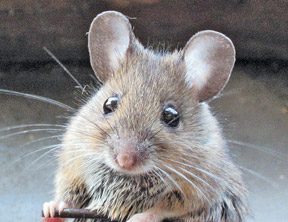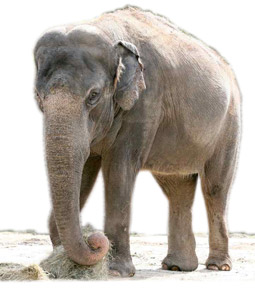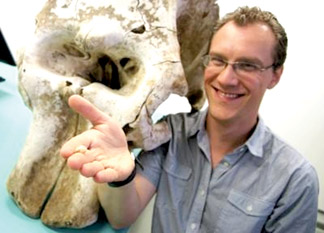|
-new-n.jpg)
English as a pilot project for O/Ls
By Ananda KANNANGARA
The proposed oral test segment, scheduled to be amalgamated with the
English Language question paper at the GCE (O/L) Examination from next
year, will largely benefit schoolchildren in their endeavour of finding
employment opportunities, said the Education Minister, Bandula
Gunawardane.
He highlighted the importance of improving the English speaking
ability of schoolchildren and said that from their younger days they
should focus more attention on learning job-oriented subjects such as
Science, Commerce, Mathematics, Economics and Information Technology ,
while allocating additional time to improve their English speaking
ability.
“This is why the Ministry of Education on a directive by the
Government has decided to introduce the oral test segment for the GCE
(O/L) Examination as a pilot project next year,”
He said depending on the success of this pilot project, the
Government will make it compulsory for all students sitting the (O/L)
examination commencing from next year.
He also urged parents and teachers to improve their children’s
English Education, taking into consideration their future prospects of
higher education in Sri Lanka and abroad.
The Minister also emphasised the importance of learning many other
foreign languages including Korean, French, German, Chinese and
Japanese, since these are also very important when it comes to finding
employment. He thanked several education authorities who have already
started foreign language courses such as Japanese, French and Korean in
their schools.
Prophet Muhammad’s birthday
Prophet Muhammad born in 570 CE on February 5, in the Arabian City of
Mecca, was orphaned at a young age and brought up under the care of his
uncle, Abu Thalib.
He later worked mostly as a merchant as well as a shepherd, and
married at the age 25. Discontent with life in Mecca, in Saudi Arabia he
retreated to a cave in the surrounding mountain for meditation and
reflection.
According to Islamic beliefs it was here, at age 40, in the month of
Ramadan, that he received his first revelation from God.
Three years after his event Muhammad (May peace be upon him) started
preaching the revelations publicly.
To escape persecution Prophet Muhammad and his followers migrated to
Medina in 622 CE. This event, the Hijra, marks the beginning of the
Islamic calendar. At the end of the tenth year, after the migration to
Medina, Muhammad carried through his first truly Islamic pilgrimage,
thereby teaching his followers the rights of annual Great Pilgrimage (Hajj).After
completing the pilgrimage, Muhammad delivered a famous speech known as
the farewell Sermon. In this sermon, Muhammad advised his followers not
to follow certain pre-Islamic customs. A few months after the farewell
pilgrimage, Muhammad (May Peace be upon Him) fell ill and suffered for
several days with head pain and weakness.
He was buried where he passed away (in his wife Aisha’s house), which
is presently housed within the Mosque of the Prophet in Medina.
May Almighty Allah bless our beloved Prophet Rasoole Kareem Muhammad
Sallallahu Alaihiwasallam.
- Ruzaik Farook
From mouse to elephant?
Just wait 24 million generations:
Scientists have for the first time measured how fast large-scale
evolution can occur in mammals, showing it takes 24 million generations
for a mouse-sized animal to evolve to the size of an elephant.
 Research published in the Proceedings of the National Academy of
Sciences describes increases and decreases in mammal size following the
extinction of the dinosaurs 65 million years ago. Research published in the Proceedings of the National Academy of
Sciences describes increases and decreases in mammal size following the
extinction of the dinosaurs 65 million years ago.
Led by Dr Alistair Evans of Monash University's School of Biological
Sciences a team of 20 biologists and palaeontologists discovered that
rates of size decrease are much faster than growth rates.
It takes only 100,000 generations for very large decreases, leading
to dwarfism, to occur.
Dr Evans, an evolutionary biologist and Australian Research Fellow,
said the study was unique because most previous work had focused on
microevolution, the small changes that occur within a species.
"Instead we concentrated on large-scale changes in body size.
 We can now show that it took at least 24 million generations to make
the proverbial mouse-to-elephant size change -- a massive change, but
also a very long time," Dr Evans said. We can now show that it took at least 24 million generations to make
the proverbial mouse-to-elephant size change -- a massive change, but
also a very long time," Dr Evans said.
"A less dramatic change, such as rabbit-sized to elephant-sized,
takes 10 million generations."
The paper looked at 28 different groups of mammals, including
elephants, primates and whales, from various continents and ocean basins
over the past 70 million years. Size change was tracked in generations
rather than years to allow meaningful comparison between species with
differing life spans.
 Dr Erich Fitzgerald, Senior Curator of Vertebrate Palaeontology at
Museum Victoria and a co-author, said changes in whale size occurred at
twice the rate of land mammals. Dr Erich Fitzgerald, Senior Curator of Vertebrate Palaeontology at
Museum Victoria and a co-author, said changes in whale size occurred at
twice the rate of land mammals.
"This is probably because it's easier to be big in the water -- it
helps support your weight," Dr Fitzgerald said.
Dr Evans said he was surprised to find that decreases in body size
occurred more than ten times faster than the increases.
"The huge difference in rates for getting smaller and getting bigger
is really astounding -- we certainly never expected it could happen so
fast!" Dr Evans said.
Many miniature animals, such as the pygmy mammoth, dwarf hippo and
'hobbit' hominids lived on islands, helping to explain the size
reduction.
"When you do get smaller, you need less food and can reproduce
faster, which are real advantages on small islands," Dr Evans said.
The research furthers understanding of conditions that allow certain
mammals to thrive and grow bigger and circumstances that slow the pace
of increase and potentially contribute to extinction.
- ScienceDaily
|

